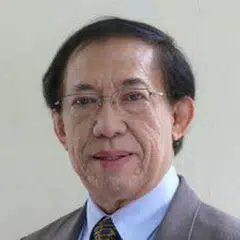Ganjar Pranowo: Indonesia's potential presidential candidate stuck between a rock and a hard place
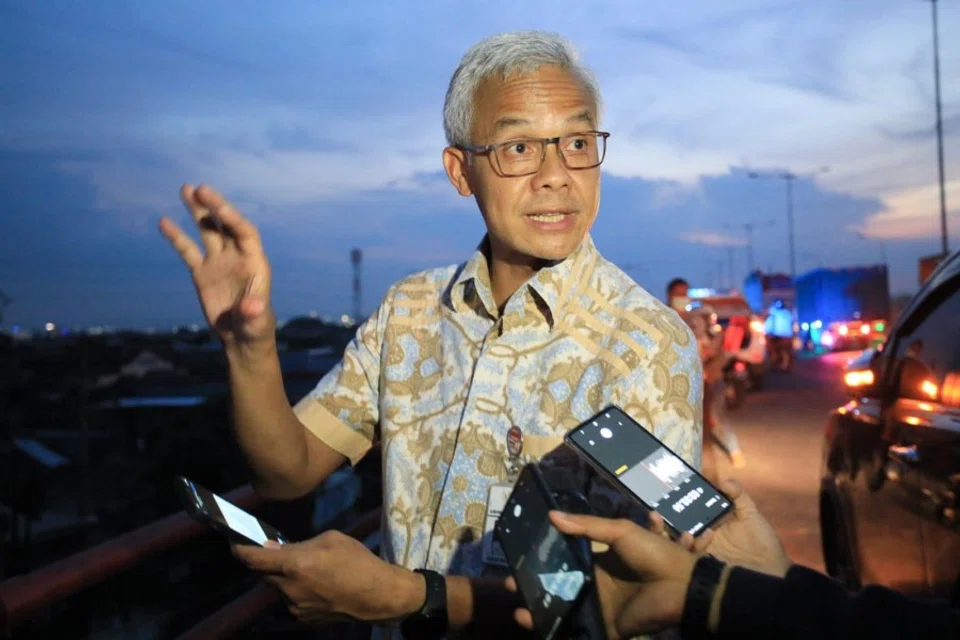
A recent poll in Indonesia showed that the top three potential presidential candidates are Central Java governor Ganjar Pranowo (32%), Defence Minister Prabowo Subianto (30%) and outgoing Jakarta governor Anies Baswedan (22%).
Topping the poll is the silver-haired 53-year-old Ganjar, born on 28 October 1968 in Central Java to a police father and homemaker mother. Unlike Prabowo and Anies, who came from prominent families, Ganjar - like current President Joko "Jokowi" Widodo - came from an ordinary family.
Ganjar went to public schools, then studied law at Gadjah Mada University (UGM). He took a break in his second year due to financial issues as his father had retired then and his mother was running a small sundry shop to keep the entire family going. Ganjar had to earn money in order to complete his law studies in 1994, at 26 years old.
He was a member of the People's Representative Council in 2009 when he began his part-time master's degree at the Faculty of Social and Political Sciences, University of Indonesia, completing it in 2013.
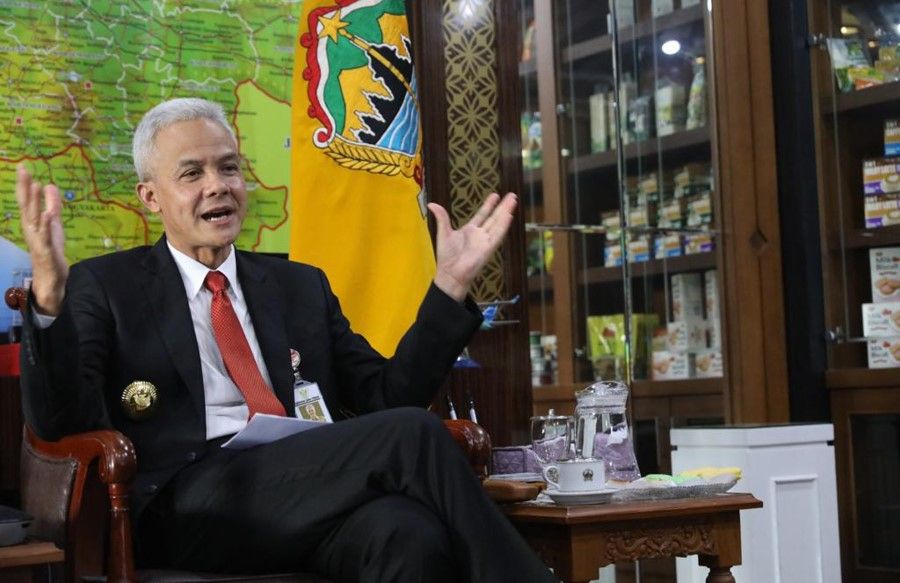
Political style similar to Jokowi
As a Muslim, Ganjar was influenced by Indonesian nationalism from young. He admired Sukarno and joined the Indonesian National Student Movement (Gerakan Mahasiswa Nasional Indonesia) and participated in demonstrations in his university days. After graduating, he worked in a consulting firm and joined the Indonesian Democratic Party (PDI).
As governor, Ganjar implemented several reforms, such as pushing for clean governance and pro-people policies. He made frequent on-the-ground visits and resolved many issues for the residents.
In 1996, he witnessed the split in the PDI between pro-Suharto Suryadi and independent Megawati Sukarnoputri, who then established the Indonesian Democratic Party of Struggle (PDI-P). Ganjar followed Megawati and worked hard for the party.
After Suharto's fall, Ganjar represented the PDI-P in the 2004 parliamentary elections, but lost. However, the winning PDI-P candidate from the same constituency was appointed an ambassador and Ganjar took over the parliamentary seat, beginning his political career.
Ganjar represented the PDI-P in several parliamentary committees; and in 2009, he won a second term in parliament. He left parliament in 2013 and successfully ran for Central Java governor - he was re-elected in 2018 and still holds the post today.
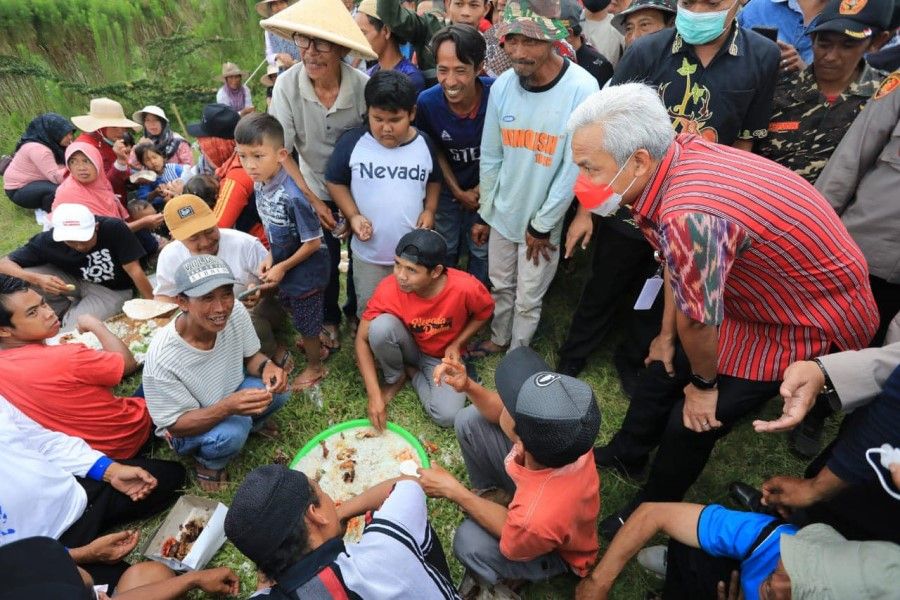
As governor, Ganjar implemented several reforms, such as pushing for clean governance and pro-people policies. He made frequent on-the-ground visits and resolved many issues for the residents. He also made it a rule for civil servants to contribute zakat (Muslim almsgiving), which would be allocated for disaster relief and developing public facilities. He helped stabilise farmers' incomes through the implementation of farmer cards and resolving farming production issues. He even negotiated with banks to lower interest rates for small and medium enterprises from 7% to 2%.
Ganjar also set up several technical institutions in Central Java to train skilled workers for the market and mitigate youth unemployment. In 2015, he was given an award for his anti-corruption efforts, and in 2018 won another award for his efforts in helping workers.
Sentiment on China and ethnic Chinese
Ganjar is a believer of multiculturalism and understands that Indonesia consists of various ethnic components, including ethnic Chinese. In 2020, Ganjar accepted the invitation of Boen Hian Tong, a local Chinese social association, to have communal lunch with its members and guests. He praised the Chinese for having a community spirit similar to that of the Javanese.
During the Lunar New Year in 2021, Ganjar presented a keynote speech for a webinar on the "Ups and Downs of Chinese Indonesians" organised by the UGM Alumni Association. He stressed the importance of national unity, in which ethnic Chinese is an inseparable part. He was also delighted to see that the Lunar New Year was made a national holiday in Indonesia for Chinese and non-Chinese to celebrate together.
Unlike the other two top potential presidential candidates, Ganjar has no records of anti-Chinese or anti-China sentiments. He also refused to play identity politics, making him popular among the moderate Muslims and minority groups.

Similar to Jokowi, Ganjar is interested in improving the infrastructure and living environment of Indonesia. He wanted to improve the lives of the people in Central Java through economic development; hence in 2015, he visited China and appealed to mainland Chinese entrepreneurs to invest in Indonesia, especially in the management of rubbish and industrial waste. In 2018, China's Hebei Bishi Steel Group invested US$2.54 billion in Central Java. In 2019, he appealed to entrepreneurs from Fujian to invest in his province, especially in street lighting and tourism.
Unlike the other two top potential presidential candidates, Ganjar has no records of anti-Chinese or anti-China sentiments. He also refused to play identity politics, making him popular among the moderate Muslims and minority groups.
Smear campaigns
Indeed, prominence attracts attention. After Ganjar polled among the top three candidates for the 2024 presidential election, his political enemies exposed his "corruption" during his time as a parliament member, accusing him of flying to London with other parliament members for a holiday, with the air tickets illegally paid for by Bank Indonesia. Ganjar explained that he did not know where the tickets came from, and if it was unlawful, he would reimburse the money. But the matter ended there.
Additionally, he was embroiled in an e-KTP (electronic identity card) corruption case. Reportedly, Golkar Party chair Setya Novanto had arranged to bribe four members of the People's Representative Council, of which Ganjar was one of them, to gain the e-KTP manufacturing rights. But Ganjar immediately returned the money after knowing that it was a bribe, while the others accepted the bribe. The Indonesian Corruption Eradication Commission questioned Ganjar about the matter in 2018 but did not find any evidence that Ganjar had taken the money. Furthermore, netizens recently claimed that Ganjar enjoyed watching pornography, which he did not deny.
These negative reports did not seem to affect Ganjar's image; in fact, he is often praised for his political achievements during his nine years as governor of Central Java. His amiable demeanour and ability to connect with the people are similar to Jokowi during his early days, which is why many people believe that Jokowi will support Ganjar as a presidential candidate for the 2024 elections.
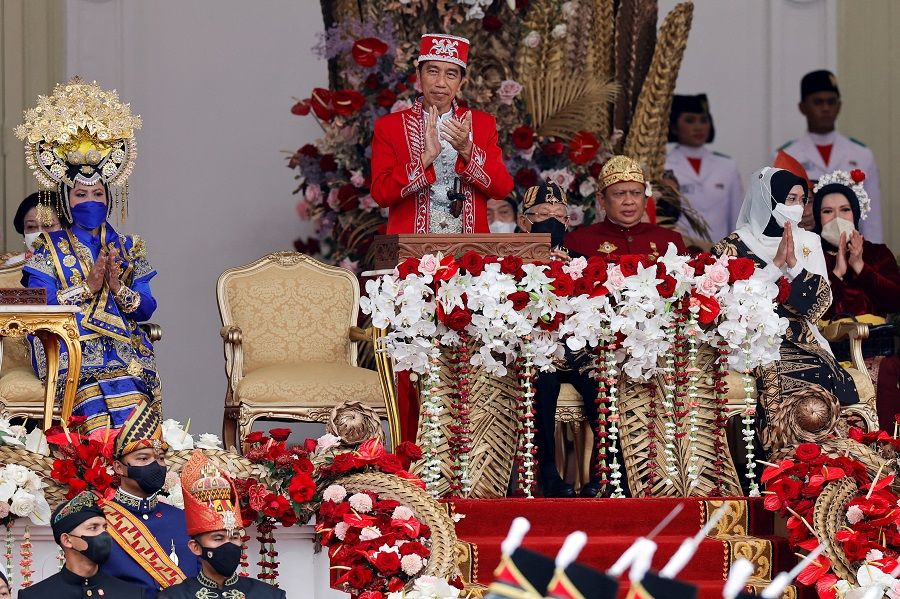
At a Projo (a volunteer group aligned with Jokowi) congress in Magelang, Central Java, on 21 May, Jokowi hinted that "the one we may support [in 2024] is likely here". While Ganjar was present, Jokowi did not respond when the attendees shouted Ganjar's name and urged the people not to be hasty.
Megawati intends to endorse her daughter, Puan Maharani, as presidential candidate of the PDI-P, which Ganjar is also a member of, but her electability is less than 1%.
Megawati's sabotage
This incident angered PDI-P leaders, including PDI-P chair Megawati. They believe that endorsing a presidential candidate was Megawati's prerogative and that no one else had the right to do so. Jokowi defused the situation in a tactful and peaceful manner, but the presidential candidate for the PDI-P remains a question.
While Ganjar enjoys the highest popularity among the top three potential presidential candidates, Indonesia's presidential candidates must be nominated by parties with more than 20% of parliamentary seats. Hence, if he is not nominated by the PDI-P, he is unlikely to run for president in 2024.
Megawati intends to endorse her daughter, Puan Maharani, as presidential candidate of the PDI-P, which Ganjar is also a member of, but her electability is less than 1%. The PDI-P's efforts in putting up Puan's posters around Indonesia to boost her image were fruitless - her electability remained at around 1%, lagging far behind that of Ganjar's.
If the PDI-P endorses Puan as the party's presidential candidate, the chances of winning would be low. Furthermore, as conservative and radical Muslims believe that women cannot be leaders, Puan would face even greater challenges. The consensus is that she will certainly lose if she insists on running for president in 2024.
However, if Ganjar accepts the nomination of other political parties, it would be seen as a "betrayal" to the PDI-P, and Ganjar would ultimately have to compete with the presidential nominee from his own party.
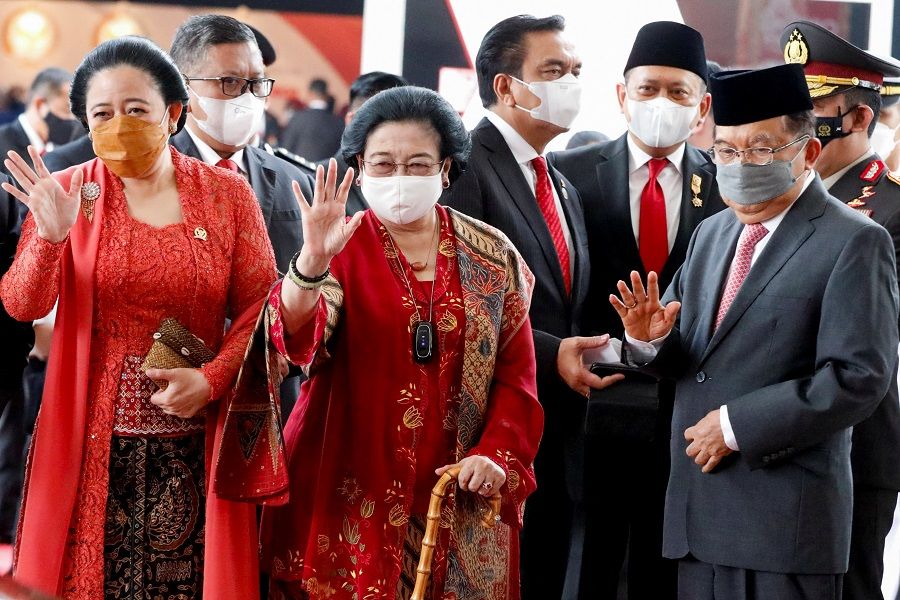
However, at present, leaders of the PDI-P still intend to endorse Puan instead of Ganjar. It was recently reported that Puan may be willing to act as Prabowo's running mate. If so, the PDI-P will not endorse Ganjar as the party's presidential candidate.
The NasDem (National Democratic) party once endorsed Ganjar, Anies and General Andika Perkasa as three potential presidential candidates. Golkar's three-party alliance also intends to endorse Ganjar as the presidential candidate. However, if Ganjar accepts the nomination of other political parties, it would be seen as a "betrayal" to the PDI-P, and Ganjar would ultimately have to compete with the presidential nominee from his own party. This would deal a major blow to the PDI-P, which could result in a massive split in the party.
If Ganjar does not accept the nomination of other political parties, and his own political party does not nominate him, he can only resign himself to his fate. Ganjar is indeed in a predicament. Will he be in the running for Indonesia's president in 2024? We will only know after the official registration of Indonesia's presidential candidates in mid-October next year.
Related: Prabowo Subianto: Indonesia's controversial presidential candidate | Anies Baswedan: Indonesia's potential president adept at identity politics | Indonesian Democratic Party of Struggle's Lunar New Year celebration paid tribute to Megawati | Jokowi's plan for Indonesia's new capital: Who benefits?
